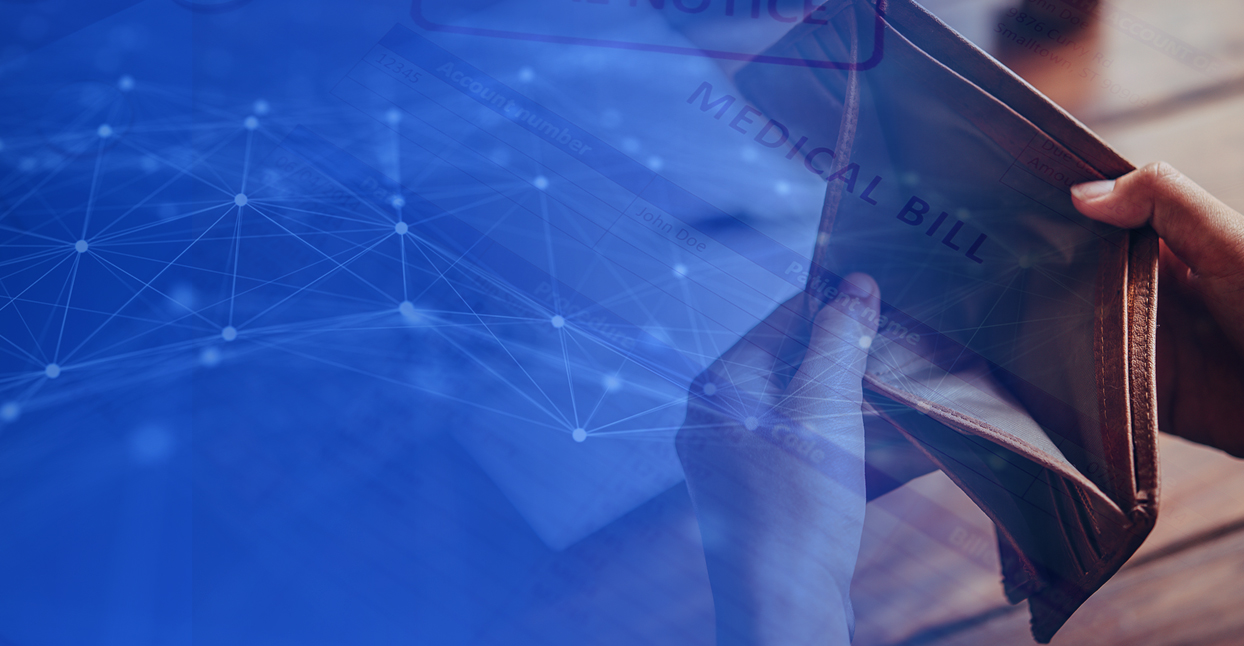Key points that could impact your revenue cycle
Please refer to the CMS Fact Sheets for additional information.
Updated as of 11/28/2023
On July 1, 2021, CMS began releasing the Interim Final Rules aimed at protecting consumers from surprise medical bills. This was the first of several rules that will guide the industry in implementing the No Surprises Act (NSA).
The No Surprises Act is aimed at protecting consumers from surprise medical bills. A surprise medical bill happens when:
- Insured patients seeks care from a provider or facility with the expectation that the services and items will be covered by their insurance plan and receive an unexpected bill stemming from the payer network rules.
- Uninsured/Self-Pay patients may now request estimates of services before receiving them. These patients are protected when actual bills for services vary from the estimated amount.
The No Surprises Act part II extends protections to uninsured and self-pay patients.
The NSA applies to employer-based coverage, (including a federal, state, or local government), plans purchased through the federal marketplace, state-based marketplaces, plans purchased through an individual market health insurance issuer and Federal Employee Health Benefits (FEHB) plans.
As regulations continue to evolve, we will continue to update this information as it becomes available.
Key Points
Rule applies to
- Health Plans – Group health plan, issuer of group or individual or health insurance coverage, or Federal Employees Health Benefits Program carrier. Excludes government payers.
- States where existing state regulations do not exist today, or the NSA has a more stringent rule or a rule that was not addressed by state regulations. See CMS Resources for additional information
Billing Rules
Emergency services at both in and out-of-network facilities are only responsible for in-network cost sharing (deductible, co-insurance, co-pays) charges. Patients cannot be billed as OON for emergency services.
- Health plan must process emergency claims as in-network, without requiring prior authorizations.
- Payment of out-of-network claims are based on a payer- calculated QPA (Qualified Payment Amount).
Non-Emergency services furnished by out of network providers at in-network facilities require a good faith estimate (GFE) and notice of consent signed by the patient.
- The good faith estimate will indicate that the provider(s) performing services are out of network and will detail the patient’s expected out of pocket expenses.
Uninsured / Self-Pay Services – Providers or facilities must provide a good faith estimate of expected charges for items and services to an uninsured or self-pay patient. This includes insured patients who are opting to pay out of pocket.
- Providers and facilities are required to inquire about the individual’s health insurance status. If the individual is enrolled in one of the covered health plans, the provider must ask if the individual is seeking to have a claim submitted to their insurer. If not, the individual is considered self-pay.
- Estimates must include expected charges for the items or services that are reasonably expected to be provided with the primary item or service, including items or services provided by other providers and facilities. **
- It must be noted that the HHS will exercise enforcement discretion where a good faith estimate is provided to an uninsured or self-pay patient does not include expected charges from other providers and facilities.
** Health and Human Services is extending enforcement discretion, pending future rulemaking, for situations where GFEs for uninsured (or self-pay) individuals do not include expected charges from co-providers or co-facilities.
Dispute Resolution
Payer/Provider Disputes (IDR – Independent Dispute Resolution)
- Payment Dispute resolution for out-of-network charges. See CMS Resources for additional information
- This is to be used when a provider disagrees with the Qualified Payment Amount (QPA) and allows for payer review and arbitrator review of each case.
Patient/Provider Disputes (PPDR – Patient Provider Dispute Resolution)
- Payment Dispute is available when the actual bill varies more than $400 from the estimated charges. See CMS Resources for additional information
DISCLAIMER: TriZetto Provider Solutions aims to provide their clients with the most up-to-date news and interpretations of regulations. The above information is for informative purposes only and is not meant to offer legal guidance any healthcare organization. Please consult your organization’s resources for specific needs or questions.
No Surprises Act FAQs
This FAQ addresses:
- How can Federally Qualified Health Centers (FQHCs) and other providers and facilities that offer sliding fee discounts comply with GFE requirements?
- How can providers comply with the GFE requirements if they do not expect to bill uninsured (or self-pay) individuals for scheduled (or requested) items or services?
- When would an abbreviated GFE be subject to the PPDR process, and how would that process apply?
This FAQ addresses:
- Will CMS enforce the requirement that GFEs for uninsured (or self-pay) individuals include cost estimates from co-providers and co-facilities beginning on January 1, 2023?
TPS INSIGHTS
We know you’re busier than ever and your staff is stretched thin, so our team of experts is prepared to deliver whatever support you need. The following information is available to help our clients manage their practices.
When the No Surprises Act went into effect on January 1, 2022, it raised more questions than answers for many physicians and administrators. More often than not, healthcare leaders were left wondering how, and when, they could be affected. It’s clear that a learning curve exists when it comes to the No Surprises Act.
WEDI survey results reveal No Surprises Act convening provider requirement poses significant challenges.
The No Surprises Act will affect patients and providers alike when it goes into effect. While the outcome is still unknown, the hope is that patients will be relieved of surprise medical bills without a change to providers’ revenue.
72 million Americans have some sort of trouble paying medical debt. Much of this can be attributed to unexpected bills that pop up after unforeseen emergency visits and treatment from out-of-network providers. Thanks to new regulation, surprise medical bills may soon be a thing of the past.
Equip your practice with the right tools from TPS
paperResolve™
Considering that out-of-network services are likely to have a high claim value, it’s important not to lose track of them. Out of network payers may send payment on paper – which can now be transformed into electronic remittance advice. Not only does this save effort and time, but it enables the TPS Denials and Contract Suite to identify out-of-network claims and track them automatically.
External Resources
CMS
- No Surprises Act homepage – Ending Surprise Medical Bills
Users will find Polices & Resources, information for consumers, and information on resolving out-of-network payment disputes.
www.cms.gov/nosurprises - Regulations and Guidance
www.cms.gov/cciio/resources/regulations-and-guidance
American Medical Association (AMA)
American Hospital Association (AHA)
Resources for your Patients
Stay Informed
Sign up to stay informed of the latest news relating to The No Surprises Act.




